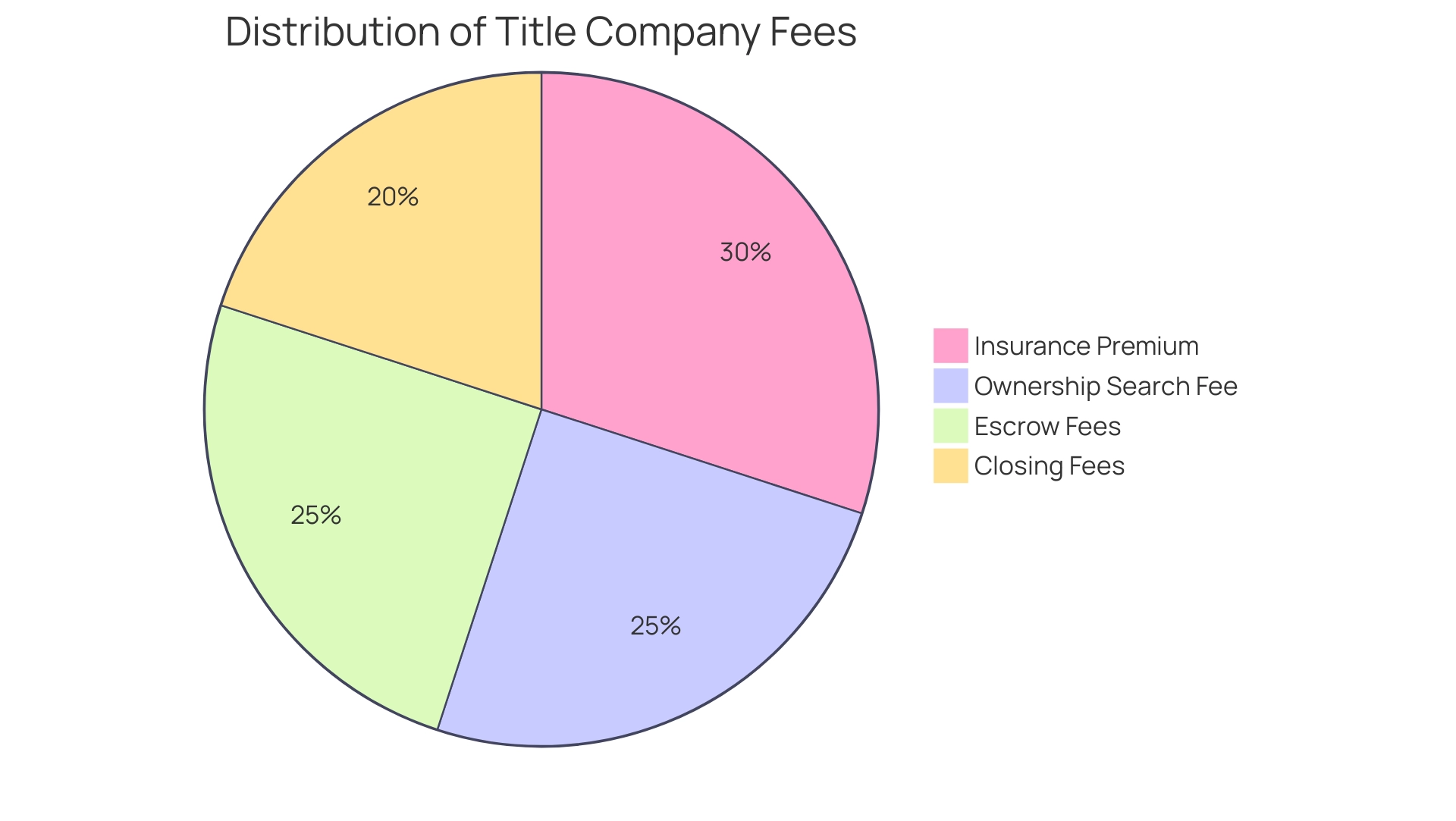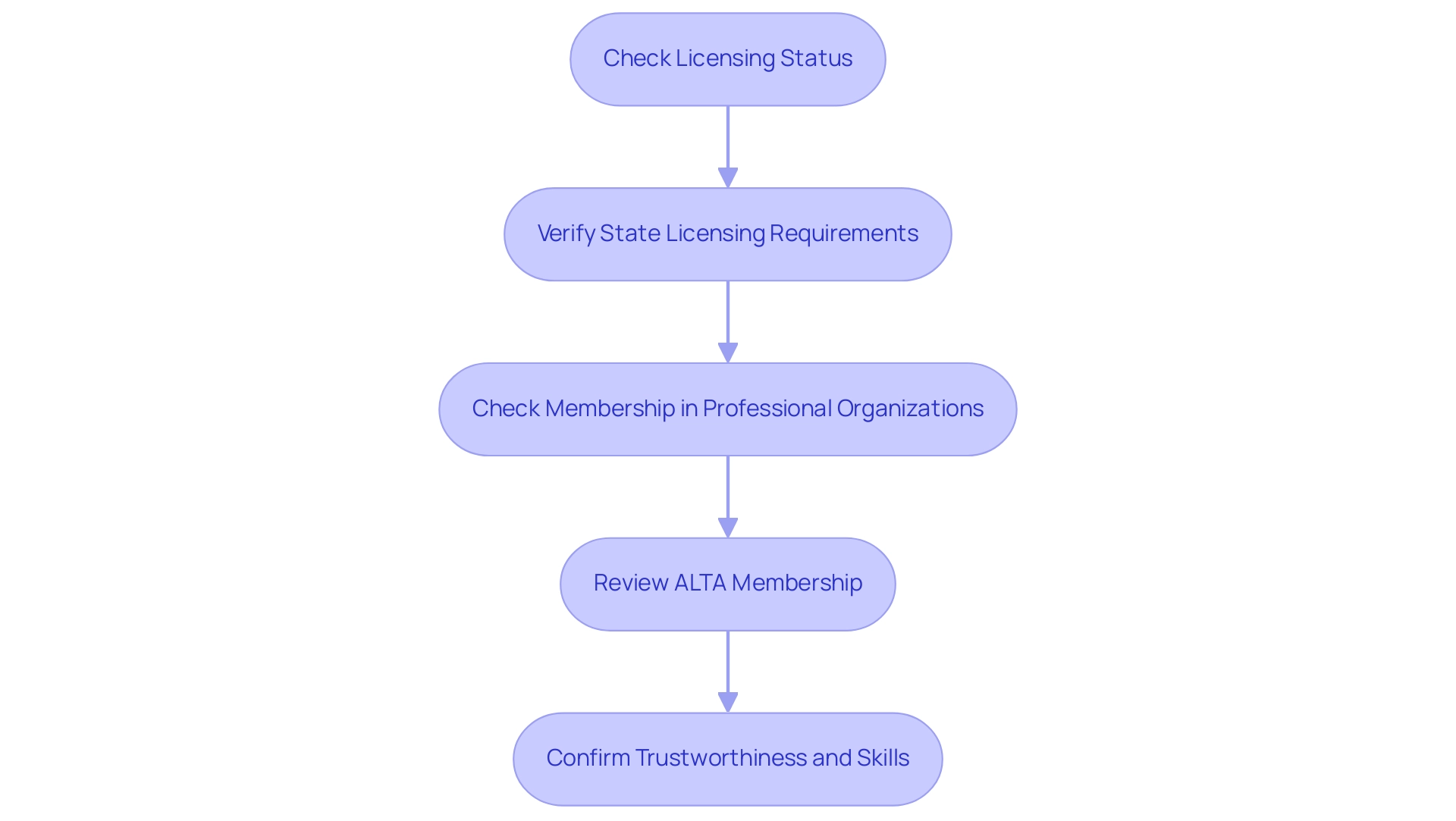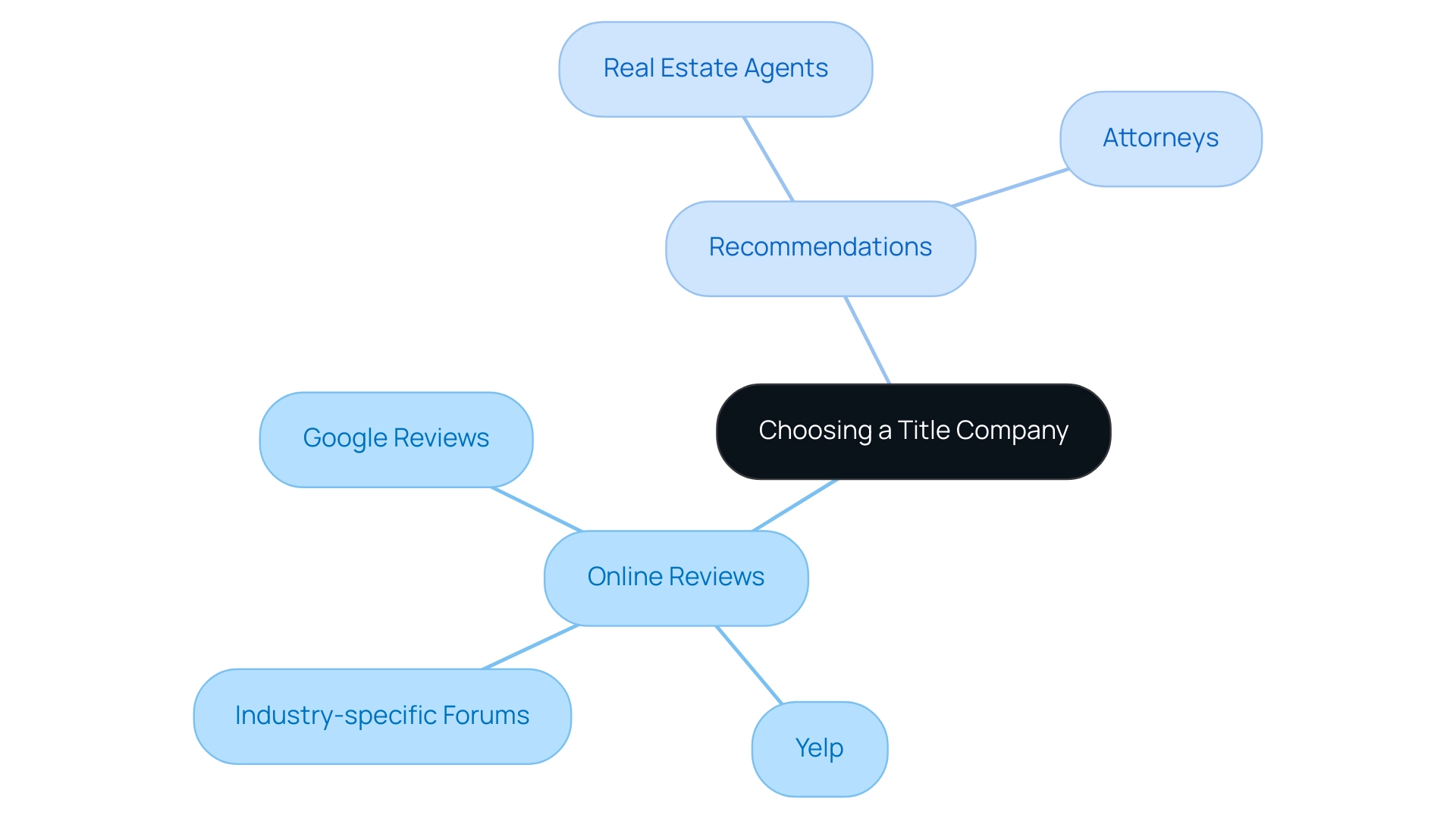Introduction
In the intricate landscape of real estate transactions, title companies serve as essential guardians of property ownership, ensuring that titles are free from disputes and encumbrances. Their multifaceted roles encompass:
- Conducting meticulous title searches
- Providing critical title insurance
- Facilitating smooth closings
All of which are vital to safeguarding buyers and lenders alike. With the integration of cutting-edge technologies, such as machine learning tools from Parse AI, the efficiency and accuracy of title research have seen remarkable advancements, transforming traditional practices. As the industry continues to evolve, understanding the pivotal functions of title companies and the factors influencing their selection becomes paramount for real estate professionals aiming to mitigate risks and enhance transaction success.
Understanding the Role of Title Companies in Real Estate Transactions
A title company for real estate plays a crucial role in real estate dealings by ensuring that the ownership of a property is free of any liens or disputes. Their main responsibilities involve:
- Performing comprehensive property searches
- Offering insurance
- Assisting with the closing procedure
involves examining public records to confirm ownership and uncover any claims against the property.
With the advent of , such as those offered by Parse AI, research has been revolutionized, allowing for faster and more accurate document processing and interpretation. allows users to quickly annotate documents, from unstructured data. Additionally, the platform's powerful streamline the process, enabling researchers to complete abstracts and reports more quickly and accurately, resulting in significant time and cost savings.
A title company for real estate also provides , which safeguards purchasers and lenders from possible losses due to flaws in the title. Furthermore, organizations like Harbinger Land utilize their expertise in mineral leasing and acquisitions through diligent research and educational outreach on the benefits of domestic energy production. Parse AI was established by a group of energy, property, and technology experts with over 50 years of industry experience, committed to enhancing solutions for property professionals.
By recognizing these roles and innovations, real estate professionals can value the significance of selecting a trustworthy firm to reduce risks during transactions.
Key Factors to Consider When Choosing a Title Company
When choosing a , it is crucial to evaluate several key factors to ensure a :
- Reputation: Investigate the firm's standing within the industry by reviewing customer testimonials and assessing any complaints lodged with regulatory bodies. An organization with is more likely to provide dependable services, promoting confidence in the transaction process. Recent surveys indicate that 76% of individuals are more likely to trust content shared by 'normal' people, underscoring the importance of in the decision-making process.
- Experience: Consider the firm's expertise with transactions that reflect your needs. Firms with substantial experience are typically better equipped to navigate , making them valuable partners in the process.
- Range of Services: Examine the spectrum of services offered by the firm. Many firms offer additional services such as escrow management, document preparation, and legal support, which can significantly streamline the transaction process and .
- : Evaluate the level of customer support available. An organization that prioritizes effective communication and responsiveness can greatly enhance the overall transaction experience, offering reassurance to all parties involved.
Additionally, as Mitchell Sullivan, Marketing Director of SnapClose, states, "If you need help with SEO, and I’ll walk you through it." This emphasizes the significance of for firms, which can affect customer perceptions.
Finally, consider the security of the firm's website. Implementing SSL certificates is essential for and enhancing trust; this aspect of reputation is crucial in today's digital landscape. By carefully evaluating these factors, real estate experts can pinpoint a firm that fulfills their specific needs, ultimately resulting in a more smooth and successful transaction.
Evaluating Title Company Fees and Costs
When assessing firms, it's essential to comprehend their fee arrangements. The fees charged by a can vary significantly based on location, the complexity of the transaction, and the services provided. Common fees include:
- Ownership Search Fee: Charged for conducting a search to verify property ownership and identify any liens.
- Insurance Premium: A one-time fee for issuing insurance, which protects against future claims.
- Closing Fees: Charges for facilitating the closing process, which may include document preparation and notary services.
- Escrow Fees: If the agency also acts as an escrow agent, there may be additional fees for managing funds during the transaction.
It's crucial to request a from potential title companies for real estate to ensure transparency and compare costs effectively. This information enables real estate professionals to make budget-aware choices and choose a firm that provides .

Checking Credentials and Licensing
Before finalizing your choice of a title firm, it's essential to . Ensure that the business is licensed to operate in your state, as requirements can vary significantly. You can typically check licensing status through your state's department of insurance or real estate regulatory agency.
Furthermore, consider whether the firm is a , such as the American Land Title Association (ALTA), which can be a sign of their dedication to industry standards and best practices. By verifying these credentials, you can ensure that you are collaborating with a that adheres to legal requirements.

Reading Reviews and Seeking Recommendations
To gain additional understanding of possible firms, think about reading online evaluations and requesting suggestions from associates in the . Websites such as Google Reviews, Yelp, and industry-specific forums can on the experiences of past clients. Furthermore, seeking recommendations from reliable agents or attorneys can guide you to respectable firms with .
By gathering this information, you can make a more informed decision and select a that aligns with your expectations and needs.

Conclusion
In the realm of real estate transactions, the role of title companies cannot be overstated. They are integral to ensuring that property titles are clear and free from disputes, providing essential services such as thorough title searches, title insurance, and facilitating smooth closings. The introduction of advanced technologies like Parse AI has further enhanced the efficiency and accuracy of these processes, allowing title professionals to navigate complexities with greater ease.
When selecting a title company, several critical factors must be considered:
- A strong reputation
- Relevant experience
- A comprehensive range of services
- Excellent customer support
These are all vital elements that contribute to a successful transaction. Additionally, understanding fee structures and ensuring transparency in costs can help real estate professionals make informed decisions. Verifying credentials and seeking recommendations from trusted sources also play a crucial role in identifying a reliable title company.
Ultimately, the choice of a title company can significantly influence the outcome of a real estate transaction. By prioritizing these key considerations and leveraging technological advancements, real estate professionals can mitigate risks and enhance the likelihood of successful transactions. As the industry continues to evolve, staying informed and proactive in choosing the right title company is essential for achieving optimal results in real estate dealings.
Discover how Parse AI can transform your title research process—contact us today for a demo!
Frequently Asked Questions
What is the role of a title company in real estate transactions?
A title company plays a crucial role by ensuring property ownership is free of liens or disputes. Their main responsibilities include performing comprehensive property searches, offering title insurance, and assisting with the closing procedure.
What does a property search involve?
A property search involves examining public records to confirm ownership and uncover any claims against the property.
How has technology impacted the research process in title companies?
Advanced machine learning tools, such as those offered by Parse AI, have revolutionized research by enabling faster and more accurate document processing and interpretation, enhancing efficiency in information extraction from unstructured data.
What is title insurance, and why is it important?
Title insurance safeguards purchasers and lenders from potential losses due to flaws in the title, providing protection against claims that may arise after the transaction.
What factors should be considered when choosing a title company?
Key factors include the company's reputation, experience, range of services, customer support, and website security.
Why is a title company's reputation important?
A solid reputation indicates dependable services, promoting confidence in the transaction process. Customer testimonials and regulatory complaints can provide insight into a firm's standing.
What types of fees do title companies typically charge?
Common fees include ownership search fees, insurance premiums, closing fees, and escrow fees. It's important to request a detailed breakdown of all fees for transparency and comparison.
How can I verify a title company's credentials?
Check if the company is licensed to operate in your state through the state’s department of insurance or real estate regulatory agency. Membership in professional organizations like the American Land Title Association (ALTA) can also indicate adherence to industry standards.
Where can I find reviews and recommendations for title companies?
Online evaluations can be found on platforms like Google Reviews and Yelp. Additionally, seeking recommendations from reliable real estate agents or attorneys can guide you to reputable firms.
How can I ensure I choose a title company that meets my needs?
By evaluating the company's reputation, experience, range of services, customer support, and verifying their credentials, you can pinpoint a firm that fulfills your specific requirements for a successful transaction.




